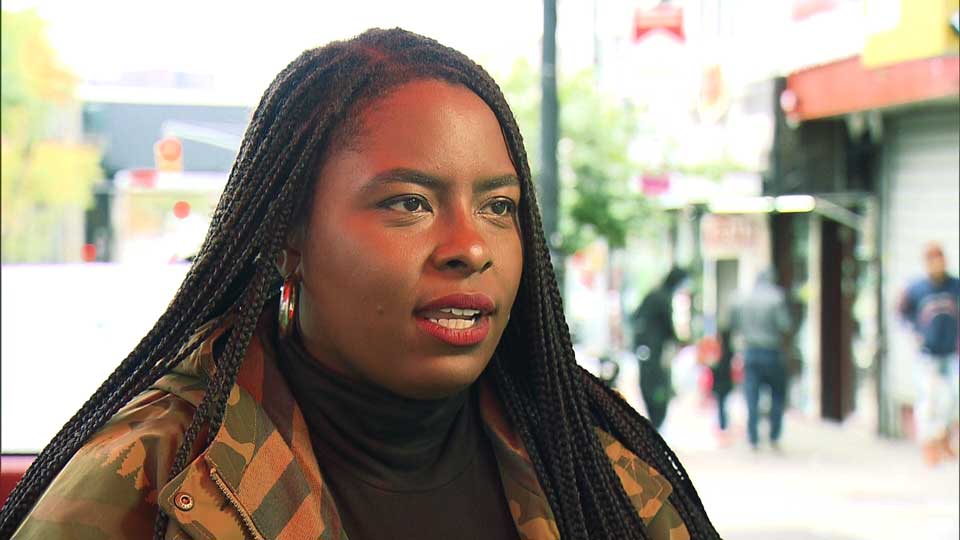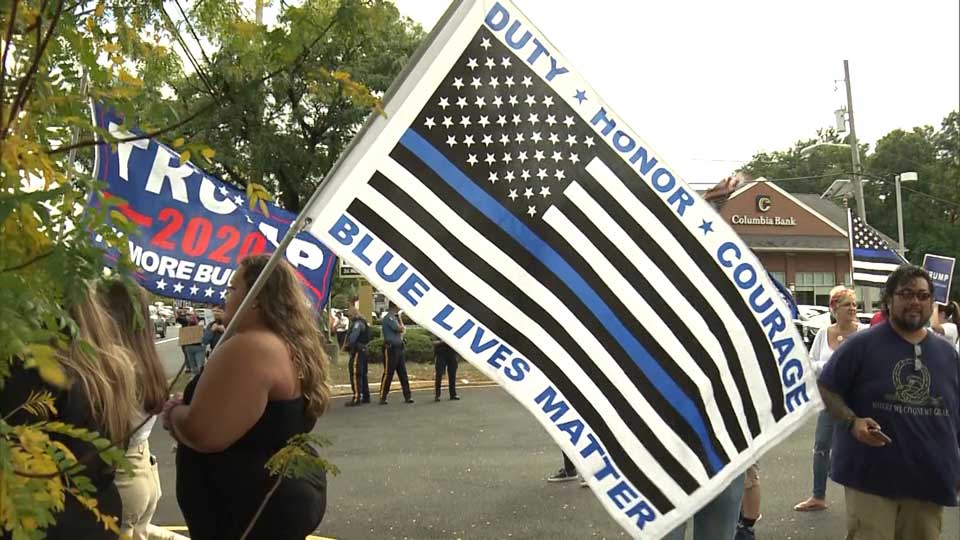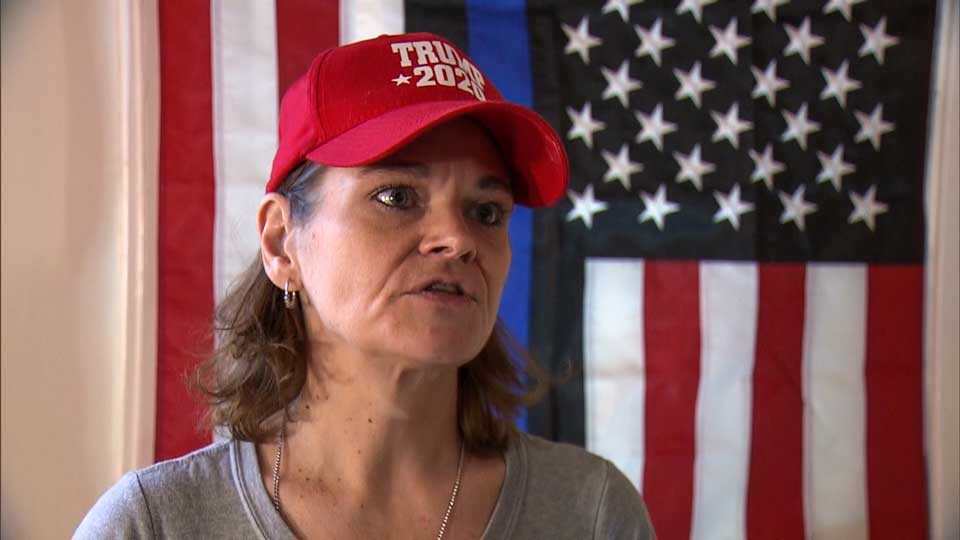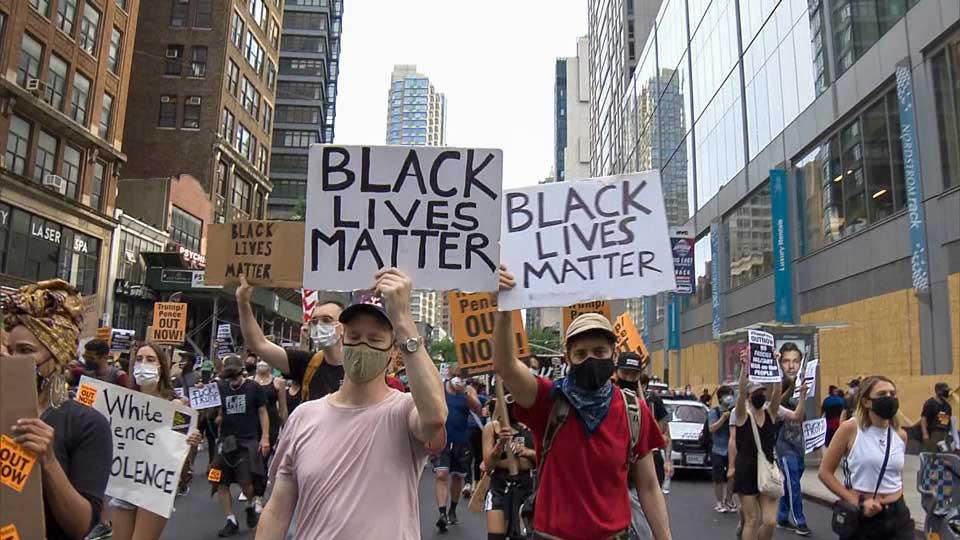Chivona Newsome of the Bronx is helping New Yorkers get out the vote. She's an organizer and activist who co-founded the greater New York chapter of the Black Lives Matter movement. In the Democratic primary, she supported the progressive Bernie Sanders to win the nomination for president. She says she's skeptical about whether the more moderate Joe Biden and his running mate Kamala Harris can make progress on racial issues.
Newsome has concerns about Biden's involvement in a 1994 crime bill that is infamous for spurring mass incarceration, and Senator Harris's record as a "top cop" prosecutor in California, among other worries about their policy positions.
However, she believes that the danger President Trump poses for racial justice far outweighs her unease over the Democratic ticket. She says that became abundantly clear after the first presidential debate.
"We fight for the liberation of Black people. But now Donald Trump has not condemned white supremacy," she says. "So that means there's a threat on the lives of Black people if he continues to preside over America and over the free world."

The Black Lives Matter protests are driving political engagement — both for and against the movement. While there was a TargetSmart study indicating surging voter registration at large BLM protests over the summer, the movement has also lost favor with many.
In June, an AP-NORC Center poll found that 54 percent of people in the US said they support the protests. By September, that number had dropped to 39 percent. The decline was driven by white Americans, whose support dropped from 53 to 35 percent. But it was felt among other groups as well. In June, 81 percent of Black Americans said they backed the protests; by September, the figure was 63 percent. Many now say they neither approve nor disapprove.
The survey also suggests that people are divided among party lines. Just nine percent of Republicans said in September that they approve of the protests, a drop from 29 percent in June. They are also increasingly likely to describe the protests as "mostly" or "all" violent.
This shift may be attributed to the aftermath of another police shooting. In August, officers in Wisconsin fired seven bullets into the back of Jacob Blake, a Black man, who was seriously wounded. The horrific incident reignited protests in many cities. While the demonstrations were largely peaceful, images of burning buildings and looting proliferated on social media.
That has led many on the right — including President Trump — to characterize the BLM movement as violent and anti-police. Stoking such emotions has been a constant theme of Trump's reelection campaign. In August, after accepting an endorsement form the New York Police Benevolent Association, the president described his agenda as "anti-crime and pro-cop all the way." Many of his supporters have taken the pro-law enforcement message to heart.
Aimee Schnuerle, a caregiver at a nursing home in New Jersey, began organizing "Back the Blue" rallies, in which supporters of police gather and drive their cars together while waving pro-Trump and "Thin Blue Line" flags, in September. She said her goal was to support police officers who have been treated unfairly, and to show her support of the president.

"I mailed out a thank-you card to every single police department in the county of Bergen, because I wanted them to know how much they're loved and appreciated," she said. "I think it's really, really, majorly important right now too especially. They're scared to leave their houses, and [they're] also going home contemplating suicide because of what's going on."
She said that while she does not denounce the Black Lives Matter movement, she worries about the effect that waning support for the police will have on public safety.

The protests have divided the country along partisan lines — many feel they must support the cause or oppose it, with little space between.
At the same time, BLM demonstrations over the summer drew some of the largest crowds and highest support, and many activists said the protests were the most racially diverse they had seen.
As the election draws near, Newsome and her allies are trying to galvanize this diverse group of supporters to vote — despite the backlash from pro-police supporters of President Trump.

